Forschung
The StrucTec@GZN research themes
The StrucTec@GZN research group works on a wide range of topics in tectonics and structural geology and links these with topics from other geoscience disciplines. Among others, we work on the following themes:
Modeling of Deformation Bands
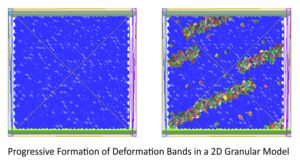
This theme focuses on the modeling of deformation bands in rocks, conducted in collaboration with the FRASCAL group. Utilizing the Discrete Element Modeling (DEM) capabilities of the Yade application, we develop micro and mesoscale models to simulate the complex behavior of rock deformation. At the microscale, our models initiate with single grain fracturing, allowing us to capture the intricate processes that govern rock behavior. By studying mesoscale deformation in rocks, our ultimate goal is to understand its impact on large-scale faulting, providing valuable insights into geological processes and fault mechanics.
Contact persons: Bakul Mathur M. Sc., Prof. Dr. Daniel Köhn
Deformation and Fluid Flow Systems in Reservoir Rock
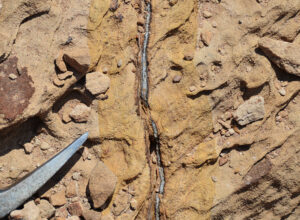
We focus on understanding the interplay of deformation, diagenesis, and fluid flow systems in reservoir rock. Based especially on field examples, we are investigating how fracturing of rock has shaped the evolution of fluid pathways and how fluids have led to alteration and cementation the host rock.
Contact persons: Dr. Eric Salomon
Modeling Subsurface Structures
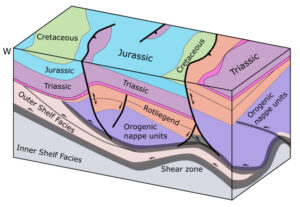
We integrate geological and geophysical datasets to map and characterize surface and subsurface structures and rock units across the scales. Visualization and modeling tools are used to understand the processes forming subsurface structures and governing parameters.
Contact persons: Dr. Hamed Fazli Khani
3-Dimensional Visualisation of Northern Bavaria
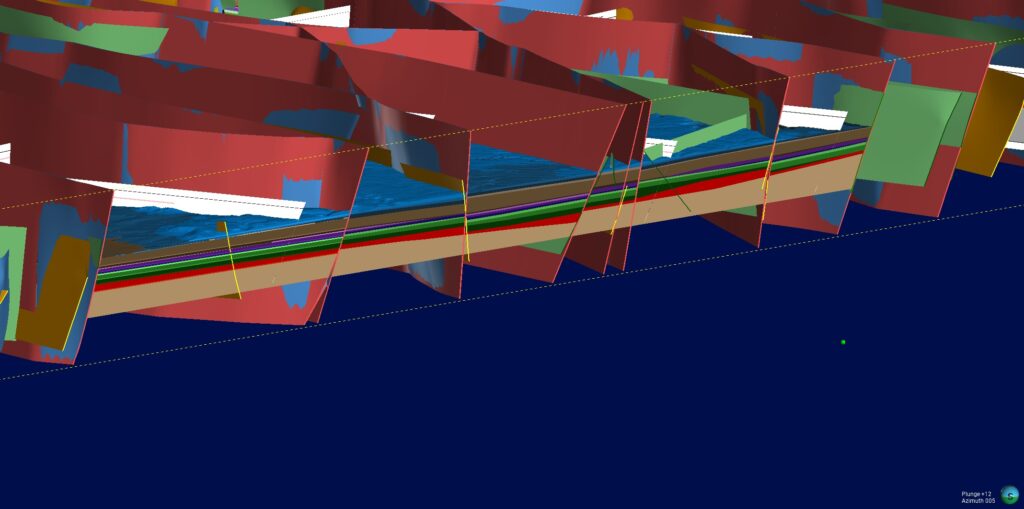
In this LfU-funded project we use various input data such as boreholes, seismics, geological maps and profiles to create a digital 3-dimensional model of Northern Bavaria. A realistic tectonic fault network and the Permo-Mesozoic sedimentary layers of Franconia are the essential components of this model. Local drone photogrammetry helps to understand the regional structural development which provides important information about the entire geological deformation history of the Franconian Platform.
Contact persons: Dr. Jürgen Lang, Dr. Rahul Prabhakaran, Prof. Dr. Daniel Köhn
Seismotectonics
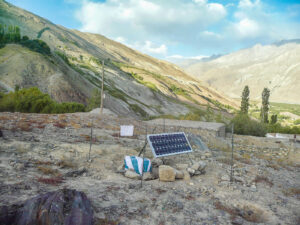
Seismotectonics is the study of the relationship between earthquakes, active fault systems, and the tectonic processes that cause them. At StrucTec@GZN, we work with seismological data—from network design and fieldwork to data processing and interpretation—with the aim of using seismology to understand tectonics. This aids in assessing seismic hazards and also enhances our understanding of the processes that govern how our Earth works.
Current projects: CoSuMY (Myanmar); Vogtland (Germany/Czech Republic).
Contact persons: Dr. Sofia-Katerina Kufner
Further projects cover subjects of (i) facture, overpressure, flow, reactions, and banding; (ii) stress inversion, fault slip analysis, stylolite stress and compaction; (iii) rift tectonics, inversion, reactivation of basement fabrics; (iv) pattern formation in Earth Sciences.
